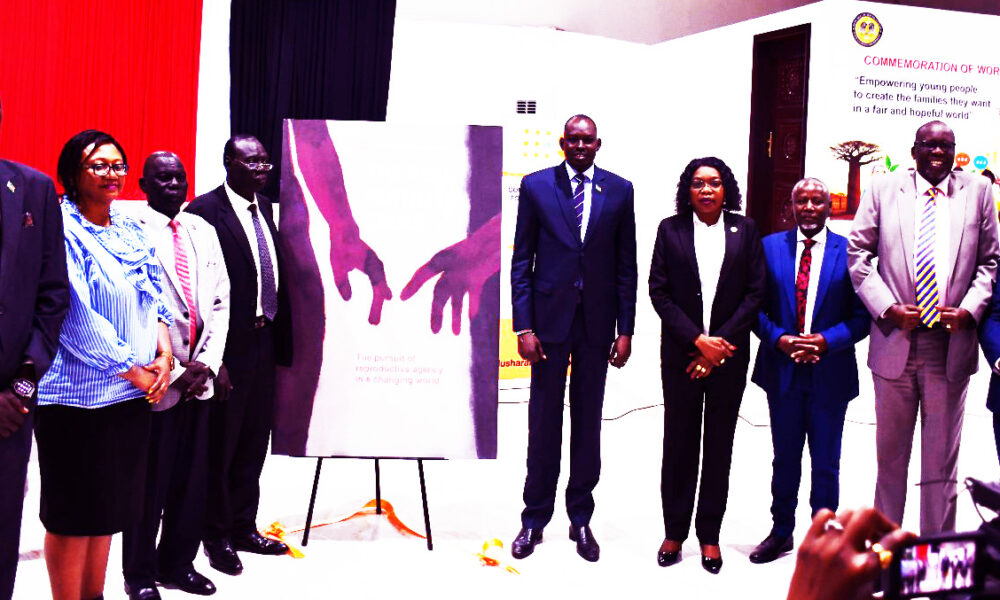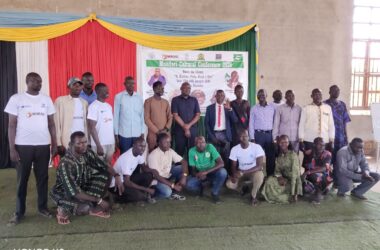
By Lodu William Odiya
The South Sudan National Minister of General education and instruction has said the country must expand education in order to achieve demographic dividends.
Speaking during a ceremony to mark the world population day and World Population Report Day yesterday in juba, Dr. Kuyok Abol Kuyok said that realizing demographic dividends will not happen by chance stating it requires deliberate, coordinated, and sustained action.
“In order to achieve it, we must expand access to quality education, vocational training, strengthen our health care system, and create robust economic opportunities for young people and women” he emphasized.
He stated that as people gather to observe the World Population 2025 and official launch of the State of the World Population Report, the occasion provides the government with a platform to examine the nation’s development demographic trajectory and its profound implications for sustainable development, peace, and prosperity.
“South Sudan is a home to one of the youngest populations in the world, with more than 70 percent of our citizens under the age of 30. This useful demographic structure presents both a significant opportunity for accelerated development known as demographic dividend and a substantial responsibility to invest strategically in our human capital to unlock this potential” he highlighted.
Kuyok revealed that the Minister of Finance and Planning, in collaboration with the line ministries were committed to developing integrated policies aimed at harnessing this demographic potential.
“Our national development strategy prioritizes investment in health care, education, gender equality, and job creation as foundational pillars for achieving sustainable population outcomes and economic growth” he stated.
He further underscored these priorities are deeply interconnected and must be holistically addressed.
“Effective policy making must be rooted in evidence” Minister Kuyo added in his speech during the commemoration.
He said the National Bureau of Statistics had supported data that forms the foundation for effective policy formulation and resource allocation to empower young people to build their desired future.
Kuyok emphasized that the government acknowledges the indispensable support of our development partners in advancing the population and our development agenda.
“We extend our sincere appreciation to the United Nations Population Fund for its sustained technical and financial support” he stated.
“We are equally grateful to the governments of the Kingdom of Norway, Canada, the UK, and other nations represented here. Your partnership is vital to our progress” Kuyok added.
Meanwhile, on behalf of the partners and the United Kingdom, Ambassador David Ashley applauded the stakeholders for organizing the World population Day event.
“Thank you I will speak on behalf of the United Kingdom but also on behalf of the other partners represented. First of all, I’m pleased that we are focusing this event on how South Sudan” he said.
The Global declines in fertility rates are making headlines, with women and young people all too often blamed for these demographic shifts.
The real fertility crisis is a lack of reproductive agency: Many people are simply not able to create the families they want due to social, economic and health barriers.
Young people are shouldering much of the blame for declining birth rates, thanks to misguided assumptions that they are freely choosing careers or other paths over partnerships and parenthood.
Yet, in the latest State of World Population report, many young people want to partner and parent but were discouraged by various factors, including anxiety about the future, financial stress, health concerns, global conflicts and fears about climate change.




